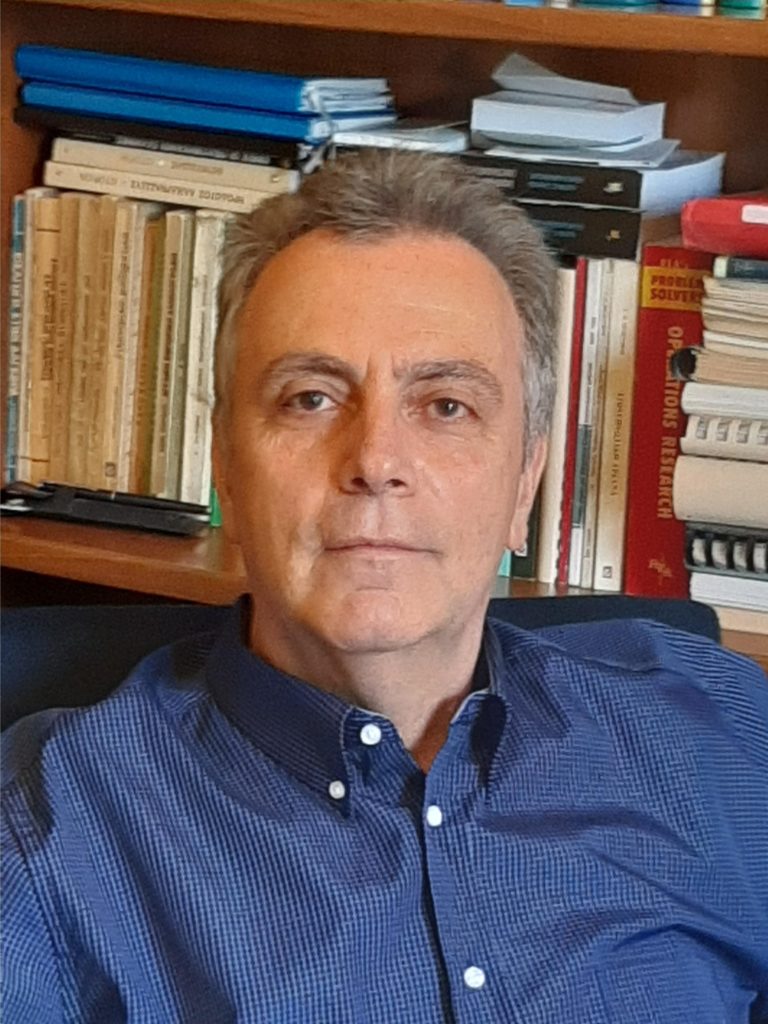Dr. Theodoros Stamatopoulos

Theodoros Stamatopoulos is currently Professor in Economics at the University of West Attica, Athens, Greece (Hellas). He has BA in Economics from the Athens School of Economics, MSc in International Economics and Finance from the University of Aix-Marseille, and PhD in International Economics from the University of Piraeus. Since 1990, he has taught undergraduate and graduate courses in economics, international finance, quantitative methods and applied econometrics at the Hellenic Mediterranean University (HMU) of Crete and the University of Piraeus in Attica, both in Greece. He was also research fellow of CEFI (Centre of International Economics and Finance) at the Aix-Marseille University. Dr. Stamatopoulos has written books as well as articles in various international academic economic journals. He also acts as a referee in blind peer review processes. He has served as Chief Financial Officer for private companies of the financial sector in Athens, as department head or Director of Graduate Programs at HMU, and always as elected academic staff.
Why did you become a member of the International Atlantic Economic Society?
The International Atlantic Economic Society (IAES) is a very active scientific association and everyone can benefit from discussions and exchange of ideas with high level economists globally. It is also exciting to participate in the society’s conferences all around the world. There are many opportunities to publish in hi-index journals.
What types of projects/research are you currently working on and what inspired/motivated you to pursue these interests?
I’m currently working on the crisis of economic theory (Kirman, 2010) which is reflected in pluralistic and deep crisis (before the Covid-19 pandemic) which is the outcome of many internal and external political and economic factors in my home country Greece.
Consecutive errors of policy makers or their selfish targeting during the European sovereign and banking crisis since 2009 have resulted from the global financial crisis 2007-2009. The most important financial institutions in Europe, with respect to size and leverage have been directly exposed to derivatives traded on the international capital market and mainly in U.S. markets. The contagion dispersed globally after the collapse of Lehman Brothers highlighted the hidden and unsustainable economic problems locally (Greece) or regionally (European Union). The response to the crisis was with drugs worse than the disease, if one looks only at the very first indicator, the public-debt-to-GDP ratio. For Greece, this indicator was worse after the crisis (2018) than it was in the beginning (2010). Thus, if we abstractly combine this economic result with the famous statement of former President Obama “the country was sacrificed (and defamed, I add) to hide the European banking problem”, we have a very strong incentive to conduct research on these topics.
What advice would you give to someone who is considering entering your line of work/field of study?
If I could give advice, generally it would be on the methodology of economic research. We must be aware that we are simply solving puzzles within the current economic paradigm in the sense of the philosopher of science Thomas Kuhn (1962).
Thus, we ought to start with the identification of a problem. Then try to use, if not enhance, the relevant theory that explains the facts. We can proceed to test the relevant hypothesis via theoretical perception of the stated problem.
However, we must be very cautious with the data selected for analysis because the observations shape the observed, which is a serious academic error. We must search the primary data extensively and discuss the topic with many experts who have been working in official statistical capacities for years and who work alongside econometricians. For instance, how many people know that the strongest and most developed European economy, Germany, has experienced huge deficits in its balance of financial transactions (2011-2013) which suddenly reversed to positive in 2015 in a revised series… with potentially “creative statistics?” from the EUROSTAT or OECD?
The final stage of any paper should consider whether the evidence is consistent with the stated hypothesis in discussing the results and deriving conclusions.
Going forward, what other projects/research are you planning to or hoping to pursue?
I hope to work in collaboration with other economists who are actually trying to revise the current paradigm in macroeconomics, like Vines and Wills (2020), or to rebuild the European Monetary Union in a sustainable political union of Europe, respecting all national identities democratically, like De Grauwe (2020).
What’s your favorite hobby?
Apart from rowing or jogging I love philosophy and history. I think all people in the world are more interested in existential issues, and therefore in their own relationships, while less in their purchasing behaviors or in using merchandise. This has extremely important consequences in modern economic thinking. The very first is that we must be aware in economics, as in physics a century ago, that there is a difference between researching and researched. Thus, we should not substitute the otherness, uniqueness or indeterminacy of the researched, with the objectivity of the researching, i.e., with imaginary conceivable entities equally understood by all through math (Yannaras, 1989).

